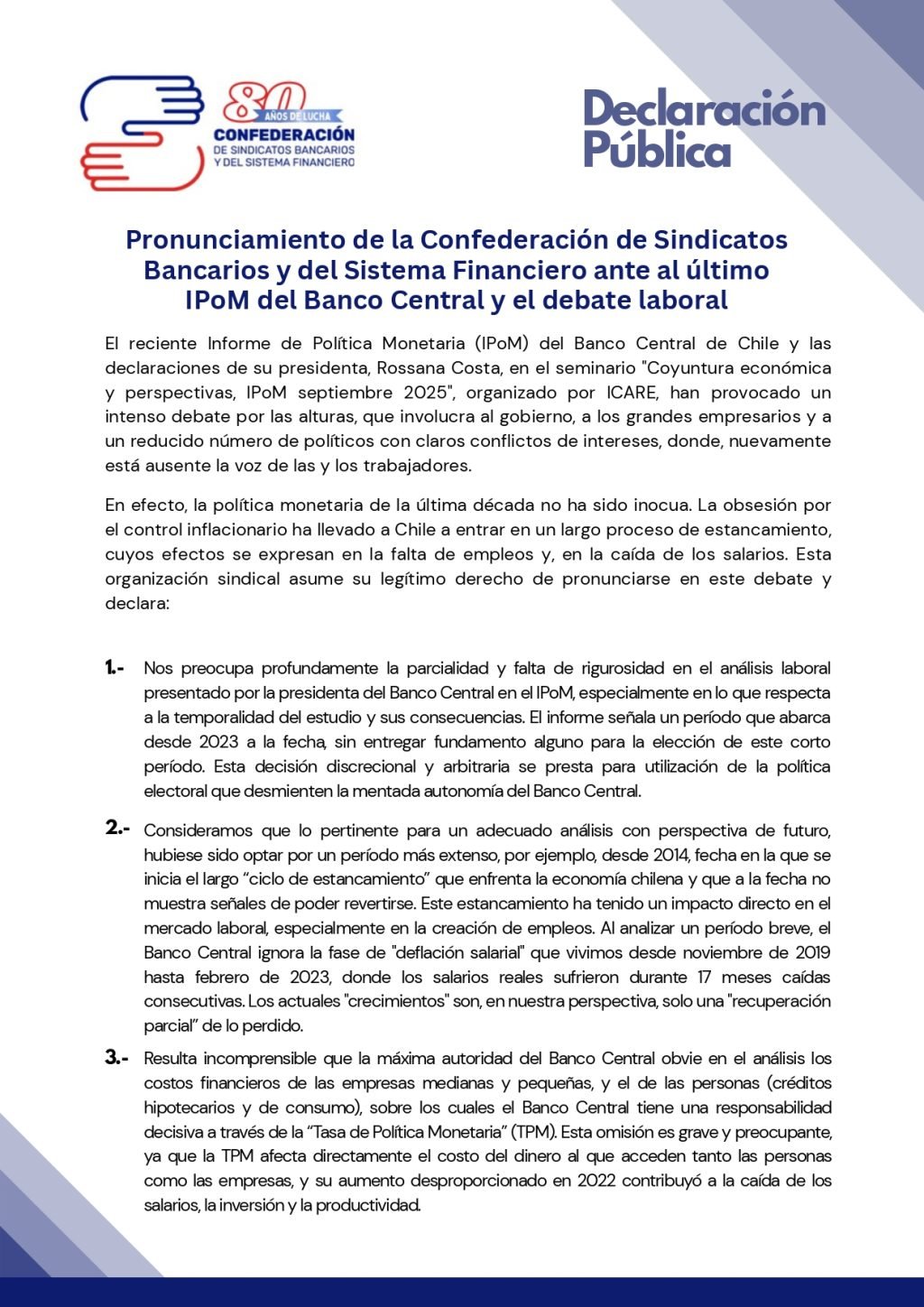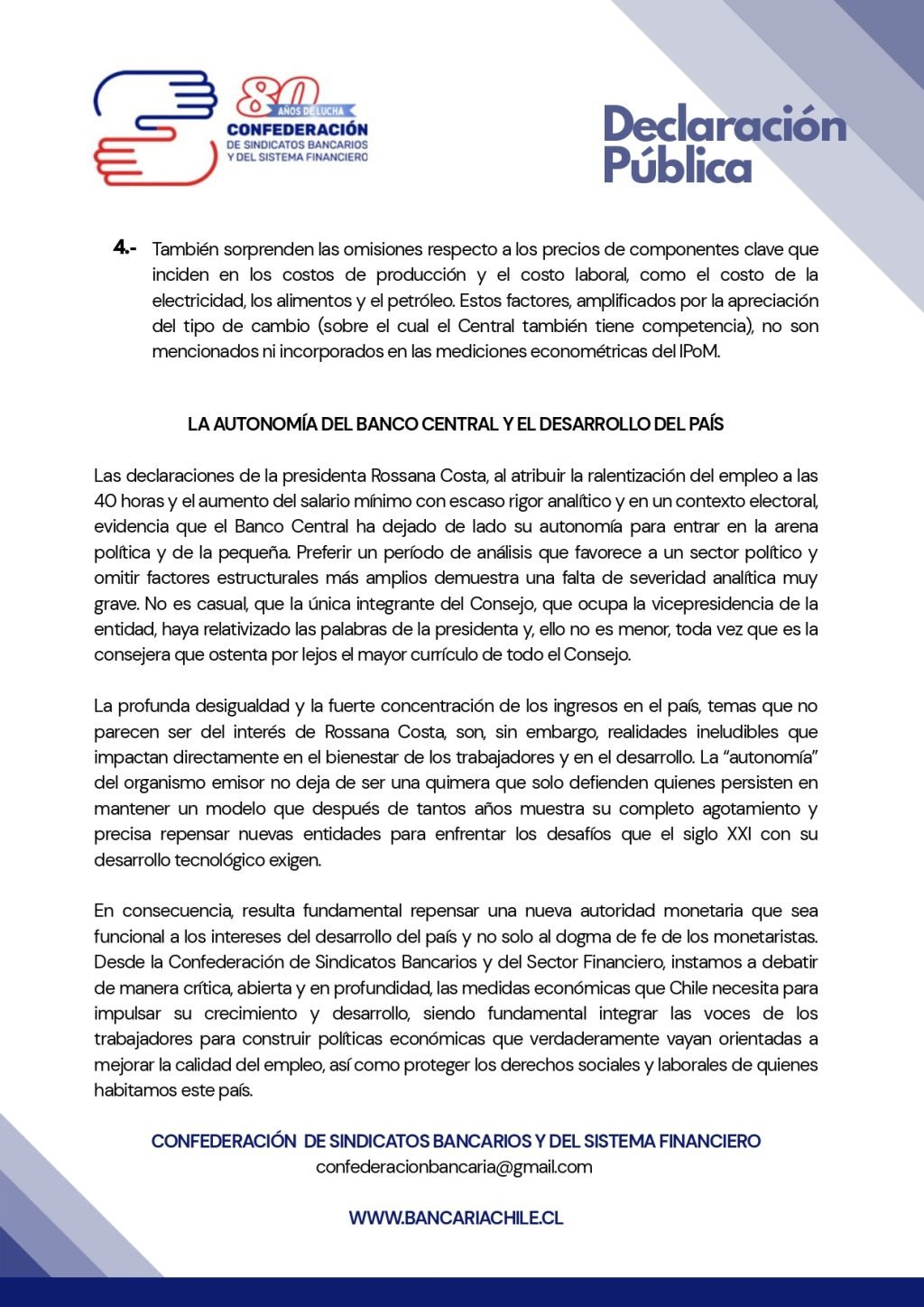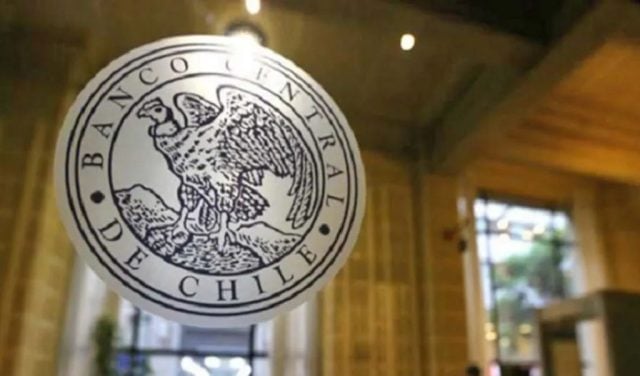In a public statement, the Confederation of Banking and Financial System Unions challenged the Central Bank’s independence following the release of its Monetary Policy Report (IPoM) and comments by its president, Rossana Costa, who they say attributed the slowdown in employment to the 40-hour workweek and the minimum wage “with scant analytical rigor and in an electoral context.”
For the unions, this “shows the Central Bank has set aside its autonomy to step into the political arena and engage in petty politicking.”
According to the labor organization, the latest Monetary Policy Report displays an outright “lack of rigor and bias in its labor-market analysis,” particularly regarding the study’s time horizon and its implications.
“The report cites a period from 2023 to the present without providing any justification for choosing such a short window. This discretionary and arbitrary decision lends itself to electoral use, contradicting the Central Bank’s purported autonomy,” the statement reads.
The unions added that “a sound, forward-looking assessment would have used a longer time frame, for example from 2014.” They also pointed to serious gaps, such as failing to consider financing costs faced by medium and small companies and by households (mortgage and consumer credit)—areas over which the Central Bank has decisive influence through the Monetary Policy Rate (TPM).
“This omission is serious and troubling,” they argued, since the TPM “directly affects the cost of money for both people and businesses, and its disproportionate increase in 2022 contributed to declines in wages, investment, and productivity.”
Another striking omission, they said, was the failure to account for prices of key inputs that drive production and labor costs—electricity, food, and oil. They also noted the report completely ignored the period of “wage deflation” experienced from November 2019 to February 2023, during which real wages fell for 17 consecutive months.
Inequality and Income Concentration
“The country’s deep inequality and the heavy concentration of income—topics that do not appear to interest Rossana Costa—are nonetheless undeniable realities that directly impact workers’ well-being and the nation’s development,” the banking unions emphasized.
As a result, they concluded, “it is essential to rethink a new monetary authority that serves the country’s development interests—not just the monetarist articles of faith.”
Read the full statement below:


We will continue reporting. Keep reading on this topic:
El Ciudadano











